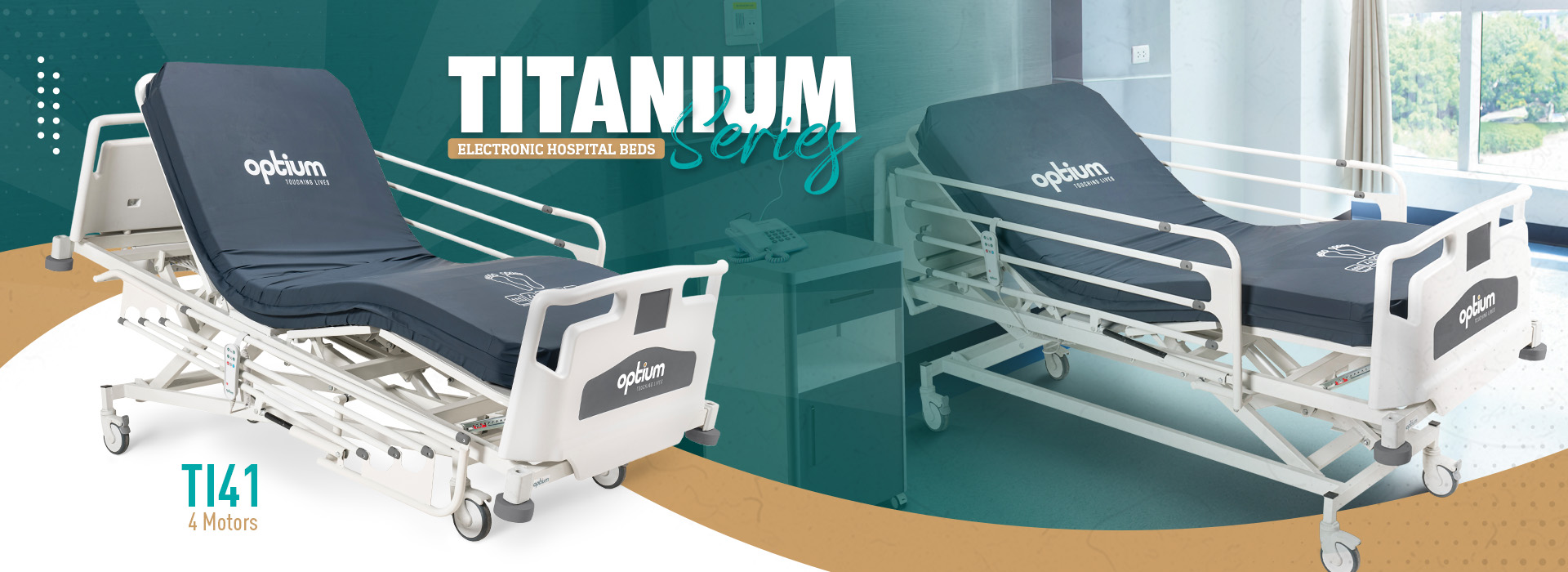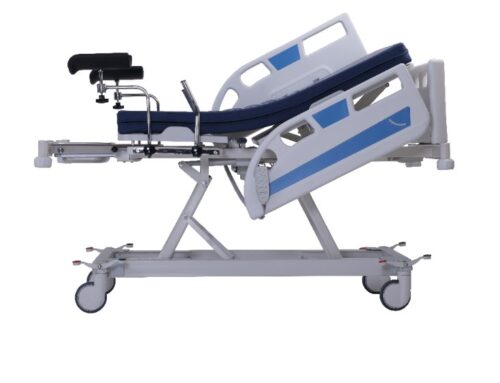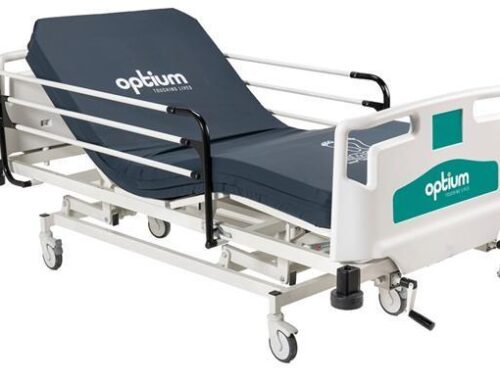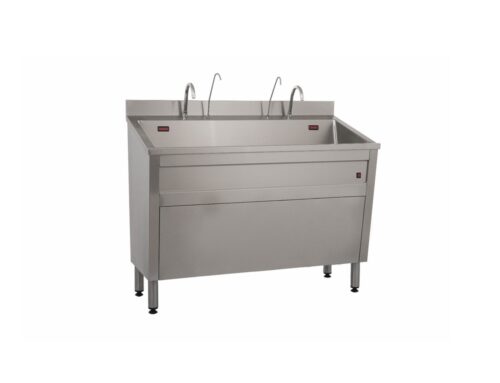When it comes to healthcare, comfort, safety, and functionality are paramount. One of the most critical pieces of equipment in both hospitals and home care settings is the hospital bed. Whether you’re a healthcare provider, a caregiver, or a family member looking for the best option for a loved one, understanding the types of beds available and their benefits is essential. In this comprehensive guide, we’ll explore the differences between Electronic Beds, Manual Beds, and Patient Beds to help you make an informed decision.
What is a Hospital Bed?
A Hospital Bed is specifically designed to provide comfort and support to patients who need long-term or short-term care. Unlike regular beds, hospital beds come with adjustable features such as height, backrest positioning, and leg support to facilitate patient mobility, improve care delivery, and reduce caregiver strain.
At Optium.com.tr, we understand the importance of quality and reliable hospital beds, which is why we offer a wide range of options tailored to various needs and budgets.
Types of Hospital Beds
1. Electronic Bed
An Electronic Bed is a hospital bed equipped with electric motors that control the adjustment of the bed’s height, backrest, and leg sections. These beds are operated using remote controls or side panels, making it easy for patients or caregivers to adjust the bed’s position without physical exertion.
Benefits of Electronic Beds:
Ease of Use: Electronic beds allow effortless positioning, which is especially helpful for immobile or weak patients.
Enhanced Comfort: Precise adjustments can be made to maximize patient comfort and reduce the risk of bedsores.
Improved Care: Caregivers can quickly and safely adjust the bed to facilitate medical procedures, feeding, or mobility.
Safety Features: Many electronic beds come with side rails and emergency controls to prevent accidents.
2. Manual Bed
A Manual Bed relies on mechanical cranks to adjust its sections. Although it requires physical effort to change positions, manual beds are generally more affordable and durable, making them a popular choice in many healthcare settings.
Advantages of Manual Beds:
Cost-Effective: Manual beds are less expensive than electronic ones, making them accessible for home care and smaller facilities.
Reliability: Fewer electronic components mean less risk of malfunction.
Simple Maintenance: Easier to maintain with fewer technical parts to repair.
3. Patient Bed
The term Patient Bed is a broad category that includes any bed designed specifically for patient care, including both electronic and manual beds. It can also refer to specialized beds used in intensive care units, recovery rooms, or home care.
At Optium.com.tr, all beds designed for patient comfort, safety, and recovery fall under this category, ensuring you get a comprehensive range to suit your needs.
4. ICU Bed
An ICU Bed (Intensive Care Unit Bed) is specifically designed for critically ill patients requiring intensive monitoring and support. These beds come with advanced features like multiple electric adjustments, built-in monitoring compatibility, and enhanced safety rails. ICU beds facilitate complex medical treatments while ensuring maximum patient comfort and accessibility for healthcare professionals.
Benefits of ICU Beds:
Enhanced adjustability for precise patient positioning
Integration with medical devices for continuous monitoring
Robust safety features to prevent falls and injuries
Designed for high-acuity care environments
5. Sofa Bed
A Sofa Bed in healthcare is a versatile piece of furniture often used in patient waiting areas or for family members staying overnight. Unlike typical hospital beds, sofa beds combine comfort and functionality, serving as both seating and a resting place.
Advantages of Sofa Beds:
Space-saving design ideal for limited spaces
Provides comfort for caregivers or visitors
Easy to convert between sofa and bed modes
Stylish and functional addition to patient rooms or lounges
Why Choosing the Right Hospital Bed Matters
Selecting the appropriate hospital bed impacts patient outcomes, caregiver efficiency, and overall care quality. Here are several reasons why your choice is crucial:
Patient Comfort and Healing: Proper positioning promotes circulation, reduces pain, and prevents complications such as pressure ulcers.
Ease of Caregiving: Adjustable beds reduce physical strain on caregivers, minimizing injury risks and improving task efficiency.
Safety: Features like side rails and lockable wheels prevent falls and ensure patient security.
Adaptability: Different patients have different needs; beds that adjust easily can accommodate a variety of conditions and treatments.
Key Features to Consider When Buying a Hospital Bed
When shopping for a hospital bed at Optium.com.tr, consider these essential features:
1. Adjustability
Look for beds with adjustable head, foot, and height settings. Electronic beds typically offer the most flexibility, but manual beds can also provide significant adjustability.
2. Weight Capacity
Ensure the bed can support the patient’s weight safely. Some models offer bariatric options for heavier patients.
3. Mobility
Wheels or casters allow easy movement of the bed for cleaning, repositioning, or emergency situations.
4. Safety Rails
Side rails provide fall protection but should be designed to allow easy access when needed.
5. Mattress Compatibility
Make sure the bed is compatible with pressure-relief or specialized mattresses for patients at risk of bedsores.
6. Power Backup (for Electronic Beds)
Electronic beds should ideally have a battery backup to function during power outages.
How Optium.com.tr Supports Your Hospital Bed Needs
At Optium.com.tr, we specialize in providing high-quality Electronic Beds, Manual Beds, and comprehensive Patient Beds tailored for hospitals, clinics, and home care. Here’s what sets us apart:
Wide Range of Options: From fully electric hospital beds with advanced features to durable manual beds, we cater to every need.
Competitive Prices: We provide cost-effective solutions without compromising on quality.
Expert Guidance: Our experienced team helps you select the right bed based on your patient’s requirements and budget.
After-Sales Service: Maintenance, repairs, and spare parts are readily available to ensure your bed remains in optimal condition.
Tips for Maintaining Your Hospital Bed
Proper maintenance extends the life and performance of your hospital bed. Here are some tips:
Regular Cleaning: Clean bed frames, rails, and mattresses frequently with appropriate disinfectants.
Check Mechanisms: For electronic beds, periodically inspect motors and control units. For manual beds, lubricate mechanical parts.
Inspect Wheels and Locks: Ensure casters move freely and locking mechanisms function properly.
Mattress Care: Rotate or replace mattresses regularly to prevent sagging and maintain pressure relief.
Conclusion
Choosing the right Hospital Bed is more than just a purchase—it’s a vital decision that affects patient care quality and comfort. Whether you prefer the convenience of an Electronic Bed, the simplicity of a Manual Bed, or need a versatile Patient Bed for specialized care, Optium.com.tr offers a variety of options designed to meet your unique needs.
Invest in a hospital bed that ensures safety, comfort, and ease of care for patients and caregivers alike. Visit Optium.com.tr today to explore our selection and benefit from expert advice and reliable service.










